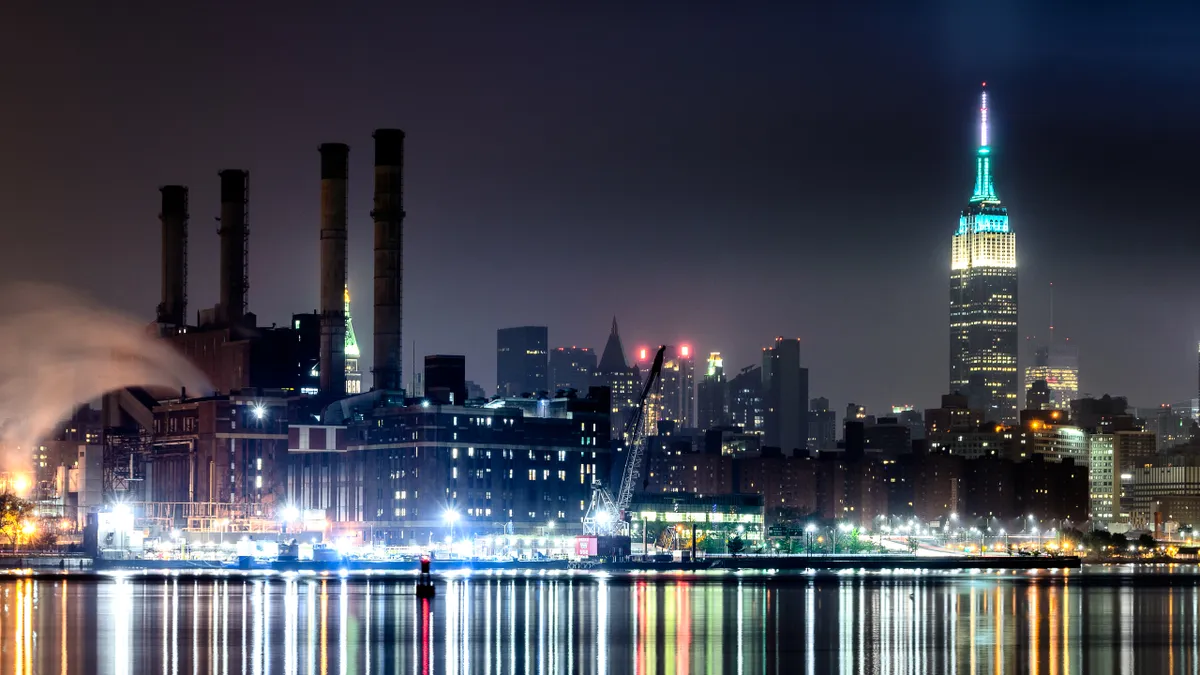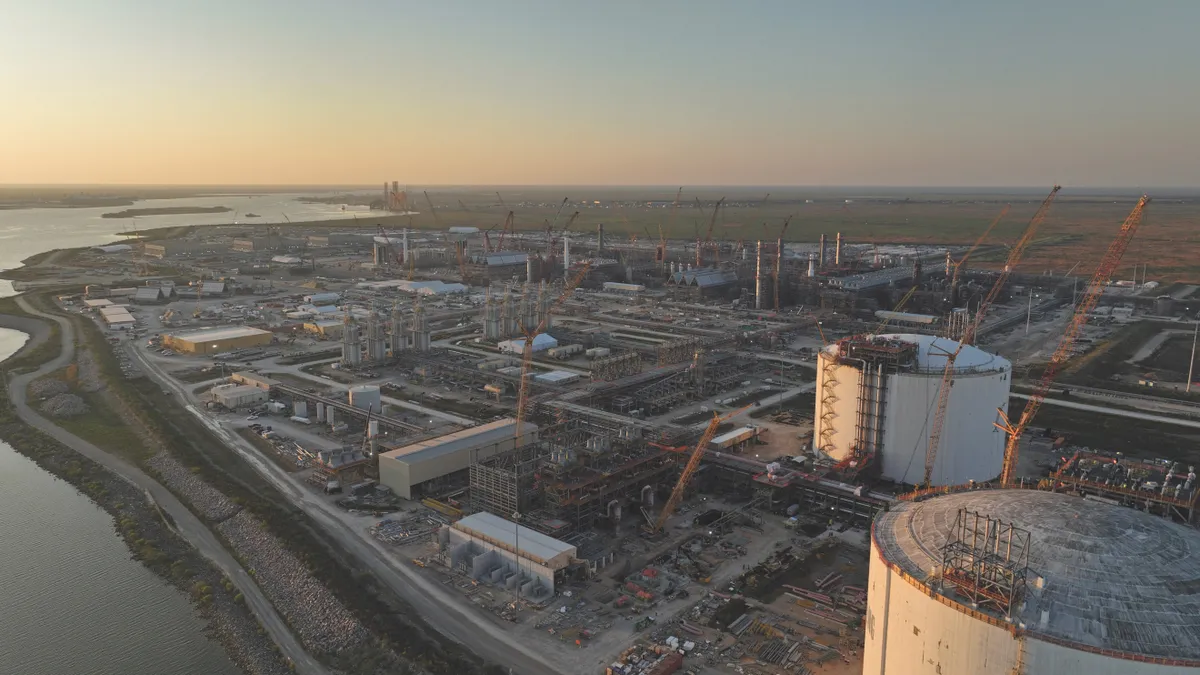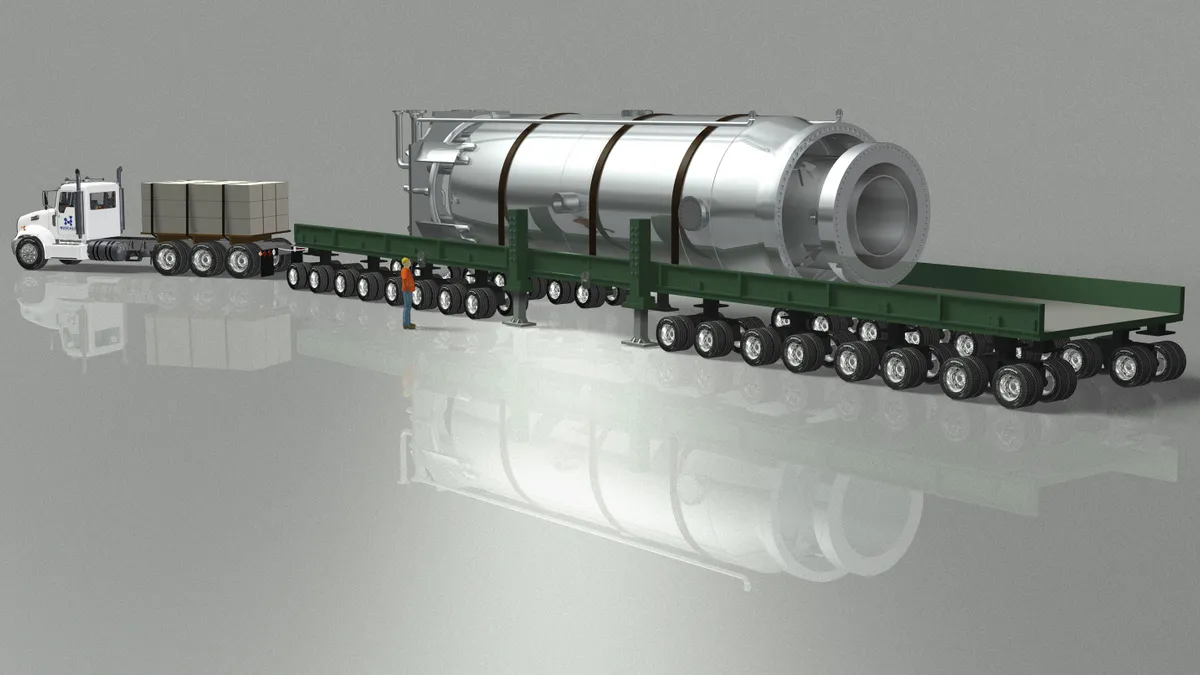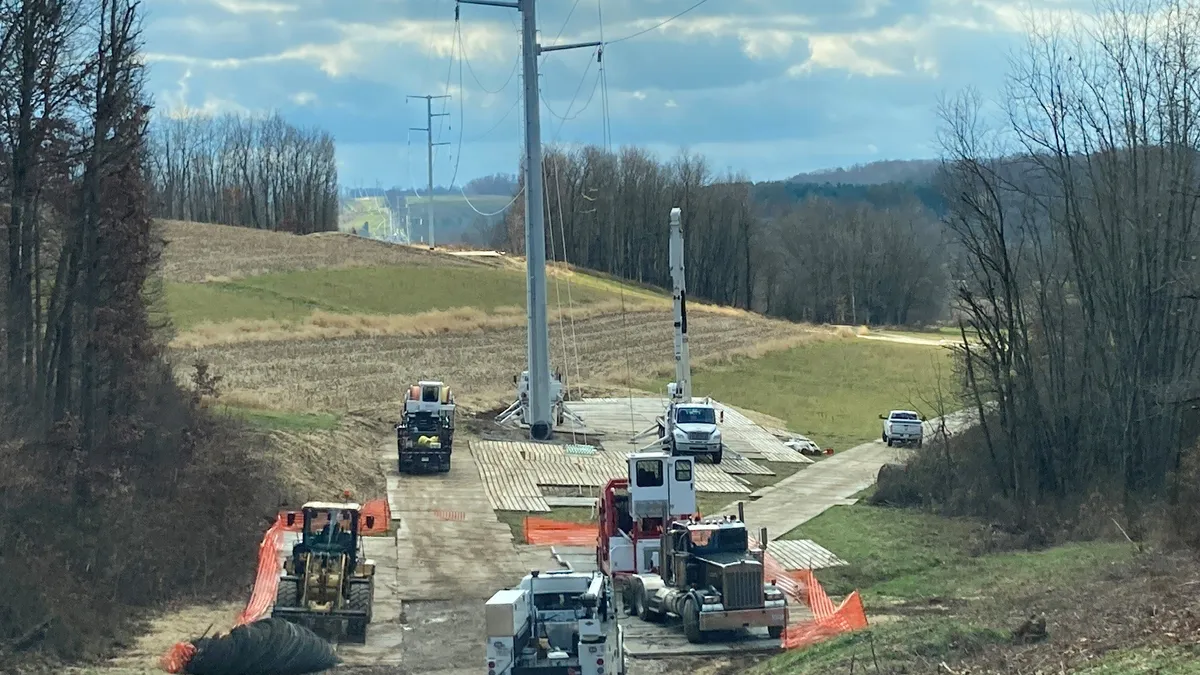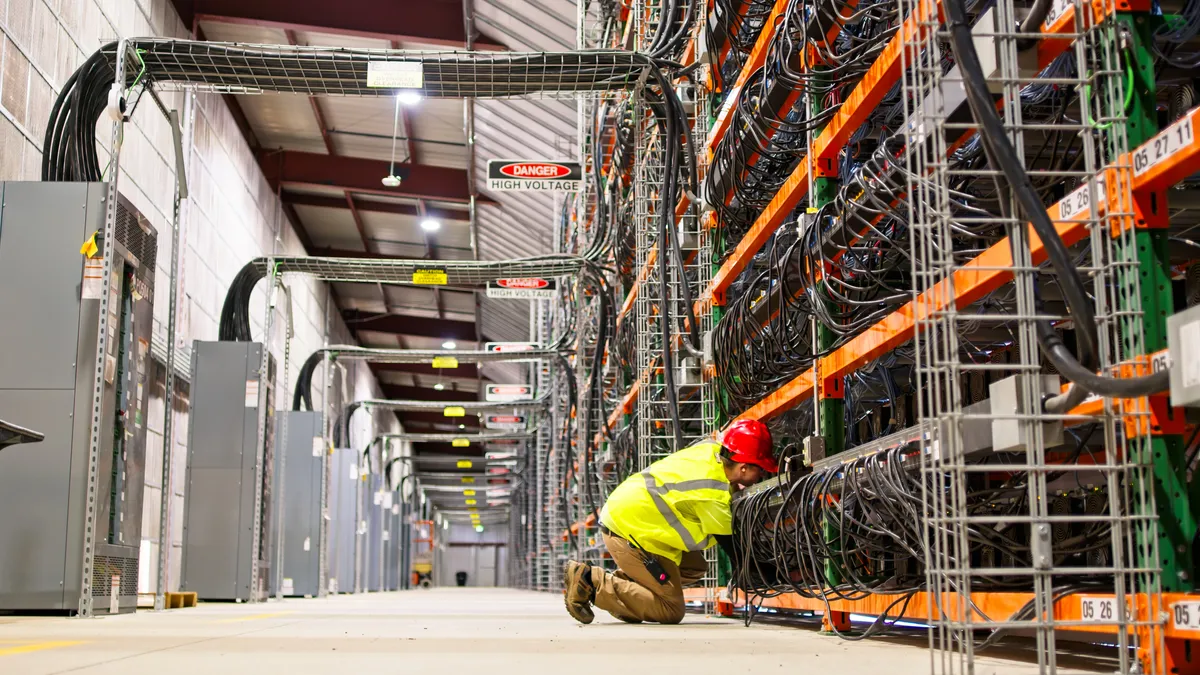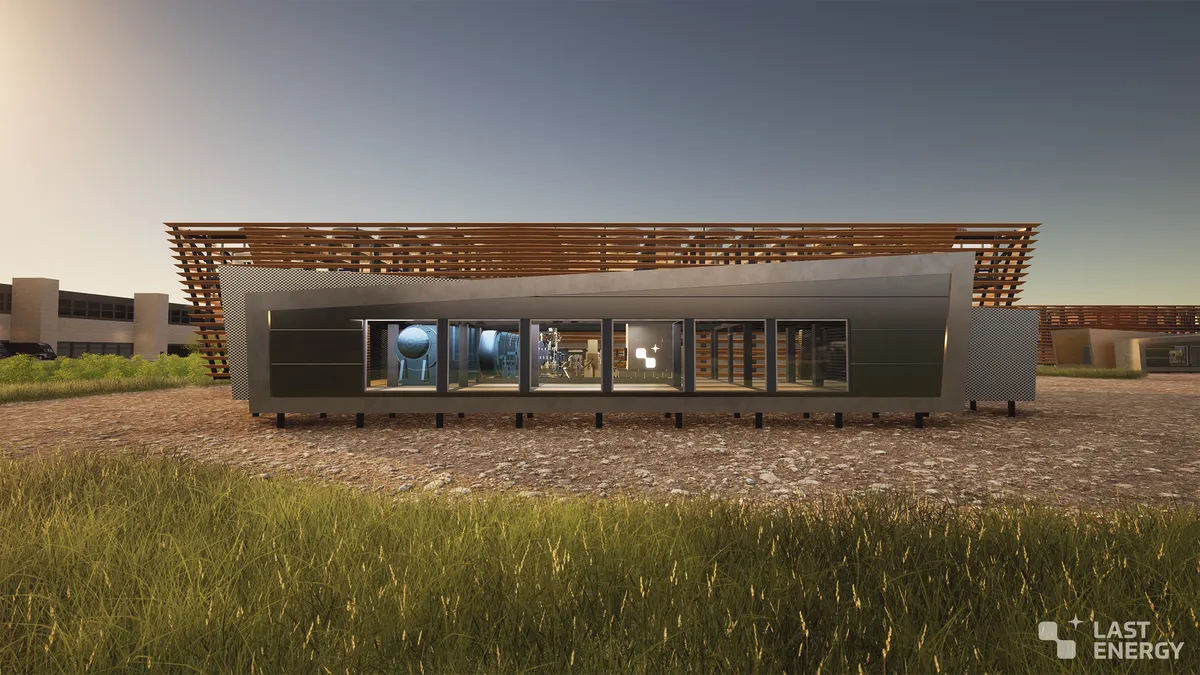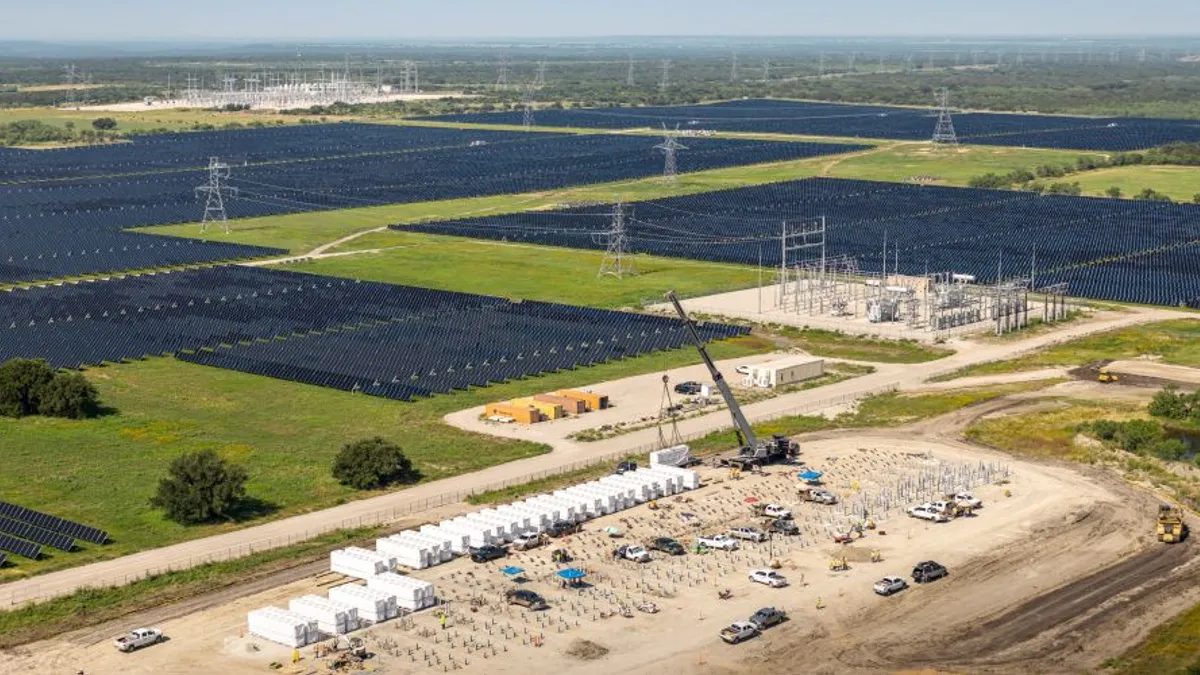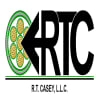UPDATE: April 3, 2020: ConEd updates the number of COVID-19 cases among its employees daily. This story represents the latest count as of 10 a.m. on Friday.
Consolidated Edison has 170 employees who have tested positive for COVID-19 — 11 have recovered and returned to work as of Friday morning, and three have died, spokesperson Allan Drury told Utility Dive.
These are the first utility worker deaths connected to COVID-19 confirmed by Utility Dive.
It is unclear whether the three ConEd employees who died were working remotely or not, but union leaders representing utility workers in New York and other states are raising the alarm about the risks posed to their members from customer interactions.
New York has been impacted by the novel coronavirus pandemic more than any other state. According to Johns Hopkins University's coronavirus tracker of global cases, the state has 92,743 confirmed cases, as of Friday morning. The U.S. has a total of 245,573 confirmed cases.
ConEd has seen that reflected in its own staff. Nearly half of ConEd's employees are working remotely, but the transition happened unevenly and it is difficult to pinpoint which infections came from the work environment or outside of that, according to Drury. The company is not distinguishing in its statistics which affected employees are remote or which are field workers at this time, but the workers who contracted COVID-19 come from throughout NYC's five boroughs and Westchester County, including field workers, control rooms, substations and other facilities across ConEd's electric, gas and steam sections.
“Our employees reflect our region. It is regrettable – but not surprising – that we are seeing employees become infected by the coronavirus. Our thoughts are with those employees as we continue to take steps to protect our workers and customers while maintaining reliable energy service," Drury told Utility Dive.
However, utility employees who don't have the option of working remotely may be more exposed to the novel coronavirus. For example, Eversource Massachusetts, which serves the greater Boston area where one of the first outbreaks occurred in the U.S., has 12 employees as of Thursday that tested positive for COVID-19, of whom 10 are field workers, according to Eversource spokesperson Reid Lamberty.
Essential employees, including utility workers, come into contact with the public in a variety of ways when restoring power or providing essential services. When New York has such high confirmed cases, the ConEd numbers don't seem that shocking, according to Jim Slevin, president of the Utility Workers Union of America (UWUA).
The second highest state, New Jersey, has 25,590 confirmed cases as of Friday morning, according to the Johns Hopkins tracker. PSEG did not respond to queries about COVID-19 confirmations among its staff.
Not all utilities are sharing the infection rate of their employees. Seattle City Light, a public electric utility in Washington, also did not respond to requests for comments regarding COVID-19 among employees.
In Louisiana, COVID-19 is spreading quickly, but Entergy cannot comment on the health status of employees in the state, according to a spokesperson. "At our plants and facilities, we have implemented new techniques like temperature screening, increasing the number of personal sanitizing stations around plant sites," and other measures, like social distancing practices," according to the company. The company is educating employees to check themselves for symptoms and report to their supervisors.
COVID-19 confirmations among utility workers are not currently being tracked by utility industry group Edison Electric Institute or the North American Electric Reliability Corporation.
"I am watching the utilities and making sure that the utility workers are having dialogue with our locals to see that they're okay," Slevin said.
UWUA locals keeping tabs on members are also vulnerable to the virus. He received news on Thursday that a New York UWUA representative died after being confirmed for COVID-19.
"I have had [COVID-19] hotspots [with a] lack of response from companies, like Columbia Gas out of Boston, and we put pressure on them to make sure that the workers are safe and making sure that they have a good plan of action," he said.
"We remain in close touch with our labor unions," Columbia Gas of Massachusetts told Utility Dive in a statement. The company said it is following state and U.S. Centers for Disease Control and Prevention guidelines, "taking all necessary COVID-19 precautions," having staff practice social distancing, wear personal protective equipment (PPE) as needed and washing hands.
The limits of what utilities can do
Utility workers must ensure service reliability and that often puts them in touch with customers. Due to the nature of the novel coronavirus, even simple customer interactions can put workers at risk.
"When consumers are out of lights ... they see the utility guy or lady out front, they ask them when is the service coming back on ... that contact is just putting the workers at risk," Slevin said. "This is not just the utility's part in it, it's also the public's part in it."
While many utilities ask customers if they have been confirmed or are showing symptoms of COVID-19, customers might lie "because they need their TV back on," he said. "Every situation could be looked at as if that's an infected area," to ensure workers are protected.
The International Brotherhood of Electrical Workers (IBEW) is also encouraging limited interactions with the general public as much as possible.
Like other utilities, ConEd has suspended installations and other programs, pausing the rollout of its smart meter program for homes and businesses, to limit the amount of interaction between its essential employees and the public.
"We are asking that members address crew staffing, reporting locations, possible sequestration of workers and defining with employers what is essential work to maintain electric, gas and water services for the millions of our customers," Mark Brueggenjohann, IBEW spokesperson, told Utility Dive.
ConEd is staggering shift times and asking employees not to travel together in vehicles. Limiting field workers to shift groups is intended to help manage the spread of the novel coronavirus, according to Andrew Goodman, clinical professor at New York University's School of Global Public Health.
However, this is a tall order for ConEd as it's already facing strains on its workforce, Slevin said. "The great recommendation is to split [your workforce] into three teams, but if you only have two teams and one team gets sick, as this virus is very badly spread ... it's very challenging when you don't have a big enough workforce that you could split it into multiple teams."
This is true across most utilities, he said.
Points of comparison
ConEd "is trying to do their best," Slevin said. "We don't know when the end of the road is for this virus, and we're just beginning April."
Based in New York, he is carefully watching things evolve in the utility sector.
"How do you send mutual aid workers into an area that's a hotspot [for COVID-19]?" Slevin said. If New York needs additional workers, as the area approaches storm season, he said utility workers would need to be spared to travel and work in the area and then be quarantined for an additional 14 days.
States and essential workers are reacting to the pandemic as best as they can barring a national coordinated effort, according to Goodman.
ConEd had issues equipping its personnel with protective gear early on in the outbreak, specifically a type of surgical glove, according to Slevin. ConEd workers currently have sufficient PPE, he said.
The company made surgical face masks available to field crews, field operations support teams and control center employees, while enforcing social distancing and extensive cleaning at work locations.
Getting the right equipment in place has been a scramble because of a lack of "national coordinated plan on purchasing and distributing," Goodman told Utility Dive. Governors have to sound the alarm and be aggressive in their response, which New York's Andrew Cuomo has done, but it's difficult to have states bidding for critical resources like PPE and to make sure equipment is going where it's most needed, he said.
"It's a totally useless way to manage what's a national crisis," Goodman said.
Other utilities are also working to track down the spread of infection within their workforces, notifying employees that came into contact with whoever tested positive for COVID-19.
DTE Energy in Michigan had announced three employers tested positive on March 18, and while other employers and contractors have tested positive since, the company is only sharing that information internally, according to spokesperson Pete Ternes.
"In all cases where an employee tests positive, their work location is isolated and sanitized ... DTE Medical Services staff notifies people who work with or near the ill employees, and they are asked to self-quarantine for 14 days to avoid the spread of the virus," he said.
In Eversource, employees that tested positive reported who they had been in direct contact with at the company and those employees were notified and asked to stay home, in addition to other cleaning protocols for areas where the infected employees worked.
"We have the appropriate amount of protective equipment for our field employees," Eversource's Lamberty told Utility Dive. Eversource Massachusetts' work is being done "with a focus on social distancing, hygiene and our best practices to safeguard health and avoid the spread of COVID-19."



